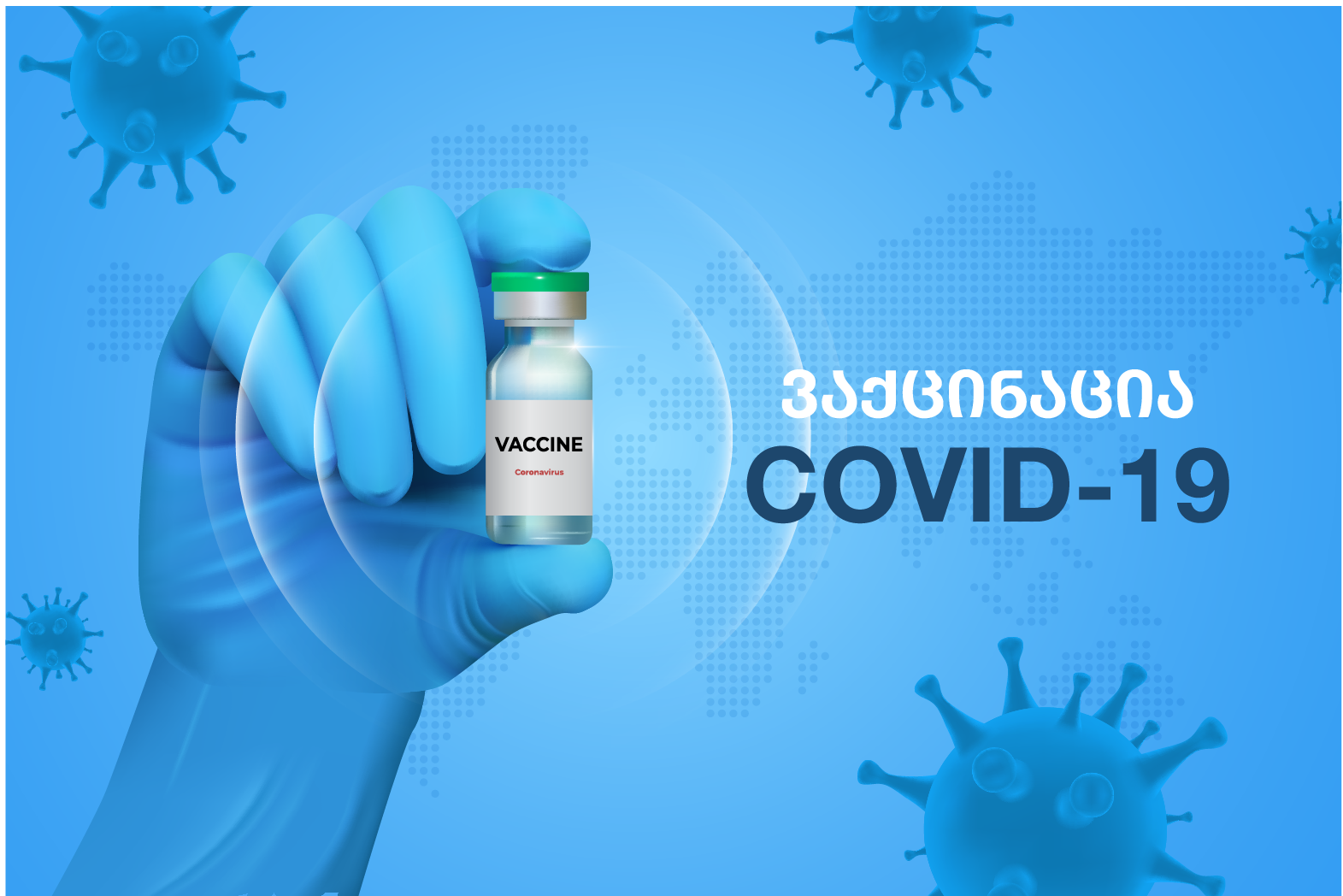When entire country was impatiently waiting for WHO authorization on Sinopharm vaccine, that was exactly when we decided to conduct another study which would clarify reality related to vaccination among Tbilisi residents and enabled us to compare collected data with the picture received 2 months ago. May in this maze, we would be able to have better understanding what Tbilisi residents think about vaccination and identify their readiness to get vaccinated, to find out what happens to us if we continue moving forward at this pace.
Whole world today tries to cope with the Coronavirus with the only weapon available – vaccine. This fight entered active phase and based on international research center Bloomberg, more than 1,48 billion doses of vaccines have been distributed in 176 countries all over the world. This means that approximately 24.5 million citizens get vaccinated a day. [1]
Source of information for Tbilisi residents
In order to identify attitudes towards vaccination among Tbilisi residents, research and consulting company ACT conducted two studies before the country got its first batch of vaccine (in February) and 2 months later (in April). [3] It is interesting to see what were expectations of our citizens and what is going on today, when vaccination has started.
Unlike the study conducted in February, awareness level of Tbilisi residents in regard with vaccination increased by 33% in April. This time around, 70% of citizens reported on being sufficiently informed about Coronavirus vaccination and expressed readiness to make a decision. Even though main sources of information remained the same in both studies: internet, television and friends/family, the second inquiry showed slight increase (by 6%) in case of television (total of 67%) and 11% increase when naming friend/family (total of 26%).
If we have a look at age groups, we will discover that 80% of 55+ citizens prefer television as a source of information, while internet is number one choice for 87% of 18-34 age group. it is quite interesting that rate of listing friends and family as reliable source of information equally increased in all age groups, which is presumably result of recommendations provided by vaccinated citizens.
Main barrier against vaccination
The majority of Tbilisi residents expect that their turn to get vaccinated will be in 2022 and expectations have slightly changed compared to the previous wave. 79% of Tbilisi residents believe that vaccination undoubtedly is the only way to improve epidemiological situation.
Readiness of citizens to get vaccinated increased by 7% compared to the previous wave and now 45% of Tbilisi residents are ready or is certain to get vaccinated. It is interesting that readiness to get vaccinated is most actively expressed among citizens that belong to 35-54 age group (48%) and almost every second citizen in this age group is ready to get vaccinated. However, regardless of this slight increase, 44% of respondents still hesitate (either undetermined to get a vaccine or against vaccine) and main reason they provide is overall distrust towards vaccines and possible side effects.
It is also worth mentioning that compared to the previous wave, fear of possible side effects increased by 6% and reached 38%. On one side, it is logical and connected to a few cases when vaccination procedure resulted in drastic deterioration of patient’s health or death both worldwide and in Georgia. However, on the other hand, it seems to be arguable because in some cases connection between these two facts has not been confirmed and everything is based on opinions and presumptions. Death of a newly vaccinated citizen in Georgia soon after the vaccination process started in the country, was directly connected to vaccination process and the specific vaccine. Afterwards, investigation that started against the doctors involved in this specific case revealed signs of belated medical response, but delayed and ambiguous communication of this fact could not fully obviate objections towards the established perception. That was the reason why the majority of respondents abstained from getting Astra-Zeneca vaccine.
As the world experience demonstrates, one of the important factors that assist continuous process of vaccination is extensive information campaign and mobilization. Israel is the perfect example – this country managed to fully vaccinate 56,3 percent (5,09 million) of its citizens and become a green zone in five months. Israel started vaccination campaign as early as December 19 of 2020 when Prime Minister Benjamin Netanyahu vaccinated on live TV and led the information campaign where he answered every question Israeli citizens had in regard with vaccination in video clips. In less than two weeks, more than 10% of citizens had already had their first shot of vaccine.
About preferred vaccines
Our country uses 3 types of vaccine: American Pfizer (since March 30), British Astra-Zeneca (from March 15) and Chinese Sinopharm (since May 4). It is interesting to have a look at attitudes of Tbilisi residents in regard with each vaccine. It turned out that:
The most trusted vaccine is still Pfizer - 27%, followed by Astra-Zeneca – 15% and Moderna – 15%. The least trusted vaccines are Sputnik – 4% and Sinopharm – 4%.
Number of respondents who sharply refuse to get Astra-Zeneca vaccine increased by 14% compared to the previous wave. Barriers against getting Astra-Zeneca include possible side effects (33%) and lack of information (26%) in case of Chinese vaccine. Regardless, it’s a fact that as early as on May 4, before Sinopharm was authorized by WHO (this vaccine got authorization on May 7), the vaccination booking platform almost had no free spots. Such a big demand on Sinopharm can be explained by two possible reasons: first – citizens were confident that Sinopharm would most likely get authorization and booked their appointment in advance and second – authorized or no, it was most important for citizens to see vaccination process getting started and return to ordinary life. Number of citizens registered to get the said vaccine is 25000 as of today. Booking portal can no longer handle the traffic, demand on vaccine is higher than the available limit which once again confirms readiness of certain part of citizens. They realize that vaccination is the only way to survive and they may waste time waiting for the preferred vaccine. Time, that is too valuable in the pandemic.
In search of the way out from the maze
We asked Tbilisi residents to tell us whose opinions do they take into consideration most of all. The following groups were identified:
- Health professionals - 49%
- Familiar, competent health professional - 27%
- Family/relatives/friends - 19%
Compared to the previous wave, share of considering what health professionals recommend decreased by 10%, while share of taking opinions provided by family/relatives/friends into consideration has increased by 11% which once again confirms the importance of increasing number of vaccinated citizens. It turns out, that increased number of vaccinated acquaintances automatically increases number of those who are eager to get vaccinated.
As the study demonstrates, citizens made up their mind to do pre-vaccination preventive diagnostics and be ready for the vaccination procedure. 90% of respondents plan on visiting immunologist, 86% plans on doing blood test, while 83% of respondents want to get coagulation test to check the blood clotting system.
Based on the study, we can conclude that attitudes of Tbilisi residents towards vaccination have changed after 2 months since the process started. We see increased readiness of citizens to get vaccinated and an effort to find the way out from vaccination maze: get vaccinated with available vaccines, do pre-vaccination procedures, retrieve information from different sources on their own not to lose what matters the most – the only chance to return back to normal life.
Author: Tatia Bregvadze
Analyst, ACT Research

[1] https://www.bloomberg.com/graphics/covid-vaccine-tracker-global-distribution/
[2] https://stopcov.ge/
[3] შემთხვევითი შერჩევის პრინციპით პირველ ტალღაზე თებერვალში ჩატარდა 414, ხოლო მეორე ტალღის ფარგლებში, აპრილში – 401 სატელეფონო ინტერვიუ.






